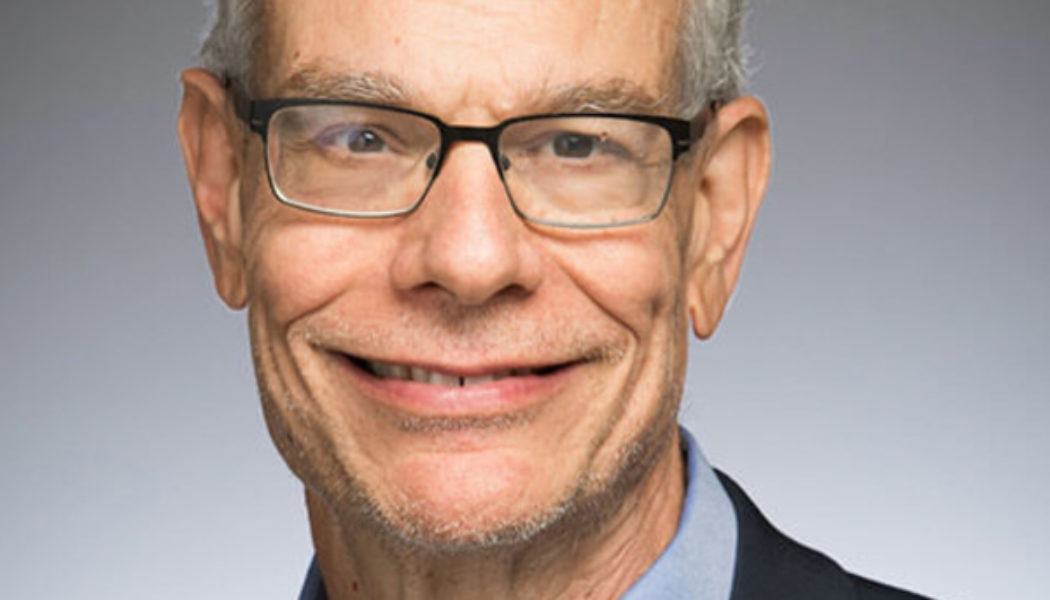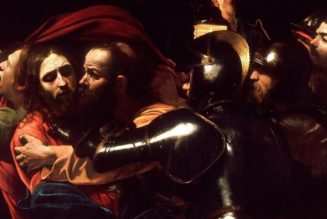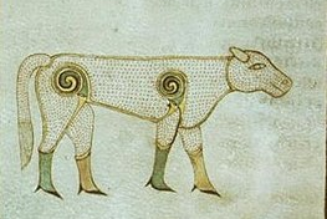Over the past two decades, the McGrath Institute for Church Life (MICL) has established itself as a vital “think tank” for the U.S. Catholic Church, helping dioceses across the country tackle pastoral challenges like young-adult disaffiliation and gender dysphoria with faith and creativity.
But now, benefactors, faculty and bishops who have been involved with the University of Notre Dame institute are expressing concerns about its future after administrators abruptly announced a coming change to its leadership.
On July 18, university Provost John McGreevy told the MICL’s advisory council that Director John Cavadini’s term “ends next summer” after 25 years, according to an email obtained by the Register.
“We will begin the process of searching for a new director this fall,” said McGreevy in the communication, which was also signed by Vice Provost Maura Ryan.
When reached by the Register, Dave Osborn, chairman of the MICL’s advisory board, indicated that the group was taken aback by the suddenness of the decision.
“Many advisory council members were aware that succession discussions were underway, but we were surprised at the announced timing of [Cavadini’s] departure,” Osborn said.
University administrators did not reply to a request for comment prior to publication, nor did Cavadini.
Now, supporters are insisting that the university appoint a successor who will carry forward Cavadini’s vision of harnessing Notre Dame’s intellectual firepower to serve the Catholic Church.
Bishop Andrew Cozzens of Crookston, Minnesota, described the MICL as “a jewel in the U.S. Church” and Cavadini’s leadership as “phenomenal.” The bishop, who has worked with the MICL to implement the National Eucharistic Revival, said the institute is distinguished by its commitment to serving the Church as the Body of Christ, not merely as an institution.
Bishop Cozzens stressed his hope that Notre Dame picks a successor who is equally committed to Cavadini’s “ecclesial” vision.
“Because if not, a great thing would be lost if the tone were to change,” the bishop told the Register.
Bishop Kevin Rhoades of Fort Wayne-South Bend, the home diocese of Notre Dame, said that when he thinks of Cavadini’s leadership of the MICL, he thinks of St. John Paul II’s teaching in Ex Corde Ecclesiae that the Catholic university should offer “service to the Church and the community.”
“And certainly through the McGrath Institute, Notre Dame has done tremendous service to the Church,” he told the Register.
Bishop Rhoades, who also serves as the U.S. bishops’ chair for religious liberty, expressed his confidence that a worthy successor will be found, citing the involvement of the university’s new president in the search.
“I have great hope that what [Cavadini] has built up at McGrath will continue after him, because I know that Father Bob Dowd has much gratitude and esteem for John and the McGrath Institute for Church Life.”
Notre Dame administrators said in their communication that the advisory council would be consulted regarding “the current needs of the MICL” and desirable qualities “at this moment in the institute’s history.” The institute currently has more than 40 regular faculty and staff and significant financial resources at its disposal.
“We know that the director works with a number of different constituencies, and we will deliberate in our processes until we are able to recruit an excellent leader,” McGreevy and Ryan wrote.
Osborn, who has chaired the advisory council since 2015, said that finding a director who “will carry on with what John has established, as opposed to taking the McGrath Institute in a different direction,” is a chief consideration of his group, which includes major financial backers of the institute.
“Advisory council members believe that it is imperative that the Catholic character of the MICL and the University of Notre Dame should guide the selection of the new director,” he told the Register, adding that council members “will monitor the succession process” to ensure that the new director “will carry on the mission of the MICL as it has been established and grown over these many years.”
Cavadini’s Legacy
In his email to the institute’s advisory board, McGreevy described Cavadini as “effectively MICL’s second founder,” who leaves behind “a thriving organization working on contemporary challenges.”
Established in 1976, MICL was a marginal academic outpost at Notre Dame before Cavadini assumed leadership in 2000. Key initiatives established during his tenure include ECHO, a lay leader training program that emphasizes theological rigor. Another program, Notre Dame Vision, brings high schoolers to campus for a summer week devoted to deepening their faith. And the Church Life Journal, started in 2012, has established a reputation as a place where Catholic leaders can think through theological and pastoral problems with intelligence and orthodoxy.

Bishop Rhoades shared that when he’s had a special need in the local diocese, such as bringing a Catholic worldview into English and science classes at Catholic schools, he’s been able to reach out to Cavadini and the MICL for help.
“At that has been a tremendous benefit to our diocese,” he said.
Cavadini, a former member of the International Theological Commission and a consultor to the USCCB’s doctrine committee, has also brought top scholars working on pastorally sensitive issues to the MICL, like Abigail Favale, an expert on Catholic teaching on gender and sexuality. MICL sponsored important in-depth studies of issues like young-adult disaffiliation and hosts an annual study day for the U.S. bishops on topics ranging from family evangelization to synodality.
“I found the topics were not ideological, but actually deeply theological, and really helped bishops think about these issues in helpful ways,” said Bishop Cozzens. He added that, at MICL, Cavadini has brought together a “diverse team of deep thinkers” who are serious about their faith and who have helped the bishops broaden their perspectives.
Cavadini’s tenure has also included financial successes, like securing a $15-million endowment for the institute from Robert and Joan McGrath in 2016.
And under Cavadini, the institute has been a vital contributor to the Catholic faith on Notre Dame’s campus. This past January, for instance, an MICL-sponsored program that encourages students to reconsider Catholicism, called “Take a Second Look,” drew nearly 500 students to a course on St. Augustine’s Confessions taught by Holy Cross Father Kevin Grove.
Daniel Philpott, a Notre Dame political scientist, said Cavadini’s leadership of MICL has been marked by “creative, capacious, tenacious and dynamic fidelity” to the Catholic Church and Jesus Christ.
“The McGrath Institute stands at the center of Notre Dame’s service to the Church beyond its walls, and that can be credited to the heroic leadership and vision of John Cavadini,” Philpott said. “It is critical that a successor be appointed who will remain faithful to this vision.”
An ‘Alarming’ Decision
Concerns about Cavadini’s successor likely stem from the way the decision to end his tenure was handled.
Gary Anderson, a Notre Dame theologian, said the abruptness of the decision was “surprising and alarming” and raises concerns about the willingness of university administrators to work with Cavadini and MICL’s advisory council to find a successor.
In the July 18 email to the advisory board, university administrators provided no explanation for why Cavadini’s term was ending. Additionally, a July 17 email from Cavadini to the advisory board, also obtained by the Register, described the development differently, with Cavadini writing that “the provost has informed me that he is not going to re-appoint me” to direct MICL.
Gerard Bradley, a Notre Dame law professor retiring this fall, said that it is not out of the ordinary for the university to limit the tenure of institute heads and that the 70-year-old Cavadini’s directorship was in its “twilight.” Nonetheless, he said that the university had compelling reasons to keep him on while ensuring that a suitable successor was found.
“His work there has been such a success that the university could rightly in this case have extended his time in charge of McGrath until the time of his retirement from the faculty, and I wish it were so,” said Bradley, who added it would be “almost impossible to overstate” Cavadini’s contributions to Notre Dame.
When asked if the advisory council had any concerns about Cavadini’s performance, Osborn indicated that there were none.
“John continues to be an exceptional leader, and the advisory council enjoys working with him,” he told the Register.
Part of a Pattern?
The MICL shakeup isn’t the first time university administrators have recently put the future of a Notre Dame institute renowned for its dynamic orthodoxy into question.
In April, administrators established the new Father John Jenkins Center for Virtue Ethics, named for the outgoing university president. Several faculty members criticized the move for undercutting the already established de Nicola Center for Ethics and Culture by claiming to be the primary place where serious ethical research will be conducted at Notre Dame.
“I think of the [new center] as subsuming the institutional space that has been occupied by the de Nicola Center,” Notre Dame philosopher David O’Connor told The Irish Rover, a student-run Catholic newspaper, at the time.
The changes affecting both the de Nicola Center and the McGrath Institute come amid the university’s implementation of “Notre Dame 2033,” a strategic framework to make the Congregation of Holy Cross institute the “leading global Catholic research university” over the next decade.
Some Notre Dame faculty have criticized the plan for inadequately articulating the university’s Catholic mission, including one priest-professor who said the document “has the tone of a Catholic NGO.”
These changes have all come under the tenure of McGreevy, who assumed duties as Notre Dame’s chief academic officer in June 2022. Prior to that, the history scholar was the dean of the College of Arts and Letters.
Bradley told the Register that, given McGreevy’s familiarity with Notre Dame’s faculty and Catholic academia more broadly, he is in good position to find a new director who is committed to Catholic fidelity and ecclesial service — and that who he picks will be an indication of the broader direction in which the provost intends to take Notre Dame.
“Filling this position with a worthy successor to John Cavadini will be a sure test of the provost’s vision for the university.”








